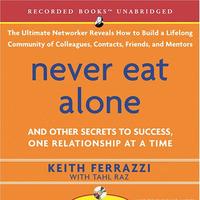22. CHAPTER 3 - If Virginia Can Do It, You Can Too
If Virginia Can Do It, You Can Too
A few months ago, a friend of mine told me about a woman named Virginia Feigles, who lived not too far away from where I grew up.
He had been inspired by her tale of triumph. Hearing her story, I felt the same way. At forty-four, Feigles decided she no longer wanted to be a hairdresser; she wanted to be an engineer.
From the get-go, there were naysayers, people who insisted it couldn't be done. Their negativity simply provided more fuel for her fire. "I lost a lot of friends during this whole thing," Feigles says.
"People become jealous when you decide to do what no one thought you would, or could. You just have to push through. Her adventure reads like a Cliffs Notes guide to career management where a bold mission and a commitment to reach out to others combine to create opportunities previously unavailable to a high school graduate.
It also conveys a harsh dose of reality: Change is hard. You might lose friends, encounter seemingly insurmountable obstacles, and face the most troubling hurdle of all— your own self-doubt. Feigles had always planned to go to college.
Raised by a single mother in small-town Milton, Pennsylvania, the opportunities were slim. She was married by seventeen and pregnant a year later. She worked full time as a hairstylist in her husband's salon and raised her only son. Twenty years went by. With her second divorce, Feigles rethought her life. Growth, she reflected, came only from change. And change came only from new goals. She was working part-time as a secretary at the chamber of commerce when she realized life had more to offer.
"I just thought, 'This is stupid. Why am I on the wrong end of this? Not everyone who has a Ph.D. in physics is Albert Einstein. While it's true not every engineer is a genius, they all know algebra— something Feigles couldn't claim.
So she buckled down and learned the subject within a few months. After a summer stint at community college, she decided to apply to a top-tier civil engineering school at Bucknell University.
The associate dean, Trudy Cunningham, didn't sugarcoat the situation. "When she arrived, I told her that life was about to get hard.
She's an adult with a life, an apartment, a car, and she was competing with kids who were living in dorms and having their meals cooked. Luckily, Feigles had always been an avid connector all her life.
She was a member of a number of community organizations, serving on the boards of the YMCA, Milton Chamber of Commerce, and Parks and Recreation Committee. She also had stints serving as president of the Garden Club and the Milton Business Association. She had supportive friends and advisors all around. For the other students, the end of class meant keg parties and football games.
For her, it meant a night working at the salon followed by grinding study sessions. Feigles doesn't remember a day she didn't think of quitting. She remembers getting back her first physics test.
She failed. "Another student thought it was the end of the world.
I told her not to worry, I wasn't about to commit suicide," she recalls with the wry insight reserved for someone who's been through it. She ended up with a C in the class. Many sleepless nights and several Cs later, Feigles found herself among 137 other engineers in the graduating class of 1999.
No one was more astonished than the graduate herself: "I just kept on thinking, 'What have I done?' And then repeating to myself, 'I've done it, I've actually done it! With her goals completed, her network has grown—and not only in terms of friends and new business contacts.
Today, she's newly married—to her former boss at the chamber of commerce— and busy with a budding career at the state's Department of Transportation. Recently she became chairperson of the Planning Commission, where she used to take notes as a secretary. Reaching your goals can be difficult.
But if you have goals to begin with, a realizable plan to achieve them, and a cast of trusted friends to help you, you can do just about anything—even becoming an engineer after the age of forty.

